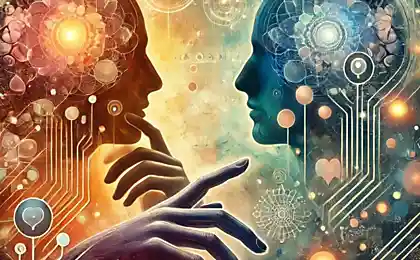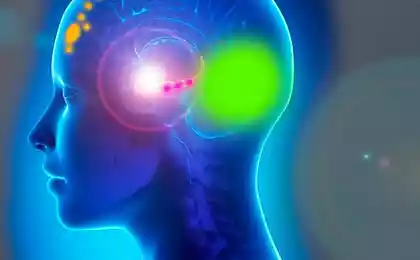354
A guide to psychology. Issue 9. Empathy and Empathy: Sharing the Joy and Pain of Others
Description: This article delves into empathy and empathy, explaining why our ability to share the joy and pain of others is so important for a harmonious life. The author examines various aspects of empathic response and provides scientific evidence of the value of this skill.
List of all articles in the cycle

A guide to psychology. Issue 9. Empathy and Empathy: Sharing the Joy and Pain of Others
Introduction
How often do you feel someone else’s pain as if it were your own? Are you able to truly enjoy others’ successes and victories?
Not feeling envious or alienated? In modern psychology, empathy is considered one of the most important abilities of a person.
It helps us not only to better understand others, but also to strengthen social ties, build trust and provide security.
harmony in relationships.
However, sympathy And empathy is more than just politeness or courtesy.
Research shows that people with developed empathy are less likely to engage in conflicts, better adapt to the team
They feel more satisfied in their personal lives. The ability to share the joy and pain of others is not passed on.
Genetically pure and does not appear at the wave of a magic wand. Most often it is a set of skills and attitudes.
which we can develop and improve throughout our lives.
Main part
How is empathy different from empathy?
In everyday speech, the words “sympathy” and “empathy” are often used as synonymous.
However, psychologists usually make a distinction between them:
- Compassion.. It is the ability to empathize with other people’s emotions, experiencing something similar to what another person feels.
The sympathizer can comfort, support, acknowledge the pain and suffering of the interlocutor.
But at the same time maintain some emotional distance. - Empathy.. The ability to literally “get into someone else’s shoes” and experience similar feelings.
With empathy, a person temporarily takes on someone else's emotional role, which helps to understand as accurately as possible.
What the other one's going through.
deep emotional synchronization.
However, excessive inclusion can sometimes lead to “emotional burnout.”
Especially in helping professions (medicine, social work, psychology).
Therefore, it is important to develop the ability to empathize with the ability to recover without losing yourself in other people’s experiences.

Why is empathy so important?
Empathy is not just a “virtuous” trait of character, but socialization.
It is a way to interact with society at a deeper level.
When we sincerely understand another person’s feelings, we reduce the risk of misinterpretation, conflict, and mistrust.
In addition, empathy is a kind of “glue” that binds a team, family or any social group.
It allows its members to work together and support each other in times of crisis.
Moreover, an empathic attitude allows us to share the joy of others.
Often people focus on the pain and grief that we can “capture” from another, forgetting that the ability to rejoice in the successes of friends.
Or acquaintances are part of empathy. Agree how nice it is to share an important victory with someone and feel
Your enthusiasm has really infected your interlocutor. This is how genuine relationships, based on mutual understanding and
support.
The Scientific Foundations of Empathy
Modern psychology actively explores the mechanisms of empathy and empathy.
One of the key discoveries of the last few decades is "mirror neurons".
found in the brain (see Wikipedia).
It is believed that they allow us to “read” the facial expressions, gestures and intonation of other people.
forming a similar emotional state. When we see someone smile, these neurons are activated.
It causes us to experience similar emotions involuntarily, even if we are not fully aware of it.
Studies also show that people who practice empathic skills regularly
(for example, during therapy or special training), the activity of certain areas of the brain changes.
Responsible for recognizing emotional signals. This suggests that empathy is not a frozen quality.
a plastic capacity that can be developed.
How to develop empathy and empathy?
If you feel that you are too detached from the feelings of others or, conversely, too much “immersed” in other people’s emotions,
There are techniques and approaches to help find balance.
Below are some tips that can be implemented in everyday life:
- Active hearing. The ability to listen carefully is the basis of empathy.
Do not interrupt the interlocutor, make a small clarification ("Did I correctly understand that ...?"),
Reflect his feelings (“Does that seem to upset you?”). This allows the person to feel heard and understood. - Developing Emotional Intelligence. Try to understand your emotions better.
Not to confuse them with the feelings of the interlocutor. Ask yourself regularly, “What am I experiencing and why?”
And try to distinguish the shades of your experiences. - Observation of nonverbal signals. Facial expressions, posture, eyes often speak more than words.
Train yourself to notice small changes in people’s behavior: how they respond to compliments, jokes, criticism. - Self-reflection practices. Keep a journal where you can record situations in which you have shown empathy.
Or vice versa, she was missing. Analyze what could have been done better. - Conscious "sympathy". When a friend or colleague shares some sad news with you,
Imagine that you yourself are in this situation. But remember your boundaries.
Not to “sink” in other people’s experiences.

The Culture of Compassion: How It Changes Society
Interestingly, in different cultures empathy They may have different accents.
In some traditions (for example, in the East), the experience of community and mutual care is elevated to a special value.
Western societies often emphasize personal responsibility and individual achievement.
However, globalization, the development of the information space and the growing interest in psychology make empathy an increasingly popular topic.
both at the family level and in business or politics.
Imagine a team where employees can share not only professional but also human emotions.
Support each other in difficult tasks or conflict situations.
This “empathy culture” increases employee engagement and motivation, reducing the risk of burnout.
Similarly, in schools where children are taught the basics of empathic communication, the level of mutual understanding and aggression among peers increases.
Conclusion
Empathy and empathy are the fundamental building blocks upon which human society rests.
The ability to understand rather than judge, the ability to share not only grief, but also the joy of others, all this gives our relationship.
depth and sincerity. We unwittingly become mirrors to each other, reflecting more than just words.
But also hidden emotions.
It is important to remember that empathy is a skill that can be developed, trained, and improved.
Not an innate privilege of the elect. It all begins with a simple observation of yourself and others.
Deciding to be empathetic and responsive rather than avoiding other people’s feelings.
Over time, we acquire a more subtle understanding of human emotions, thus becoming an important support.
for friends, family and colleagues.
If we choose the path of empathy, we also choose the path. compassionunderstanding and
respect. This journey has the potential to improve not only our personal environment.
It's also a society in general, where everyone wants to share not only pain, but also bright moments of joy.
Glossary
Empathy.
The ability to “feel” into another person’s emotional state by experiencing similar emotions and motivations.
Compassion.
A form of empathy in which we acknowledge others’ feelings and are willing to provide support while maintaining some emotional distance.
Mirror neurons
A group of neurons in the brain that are activated when observing the actions or expressions of other people's emotions, forming a similar reaction in the observer.
Emotional intelligence
The ability to understand and manage your emotions, and to understand and respond correctly to the feelings of others.
Active hearing
A technique that allows you to maintain contact with the speaker by clarifying, paraphrasing and emotional reflection.
A culture of compassion
A social environment or collective where empathy and mutual support are encouraged and treated as a norm of behavior.
A guide to psychology. Issue 8. Love and Romance: A Complex Mosaic of Feelings and Relationships
A guide to psychology. Issue 10. Groups and Teams: Why People Unite for a Common Purpose























